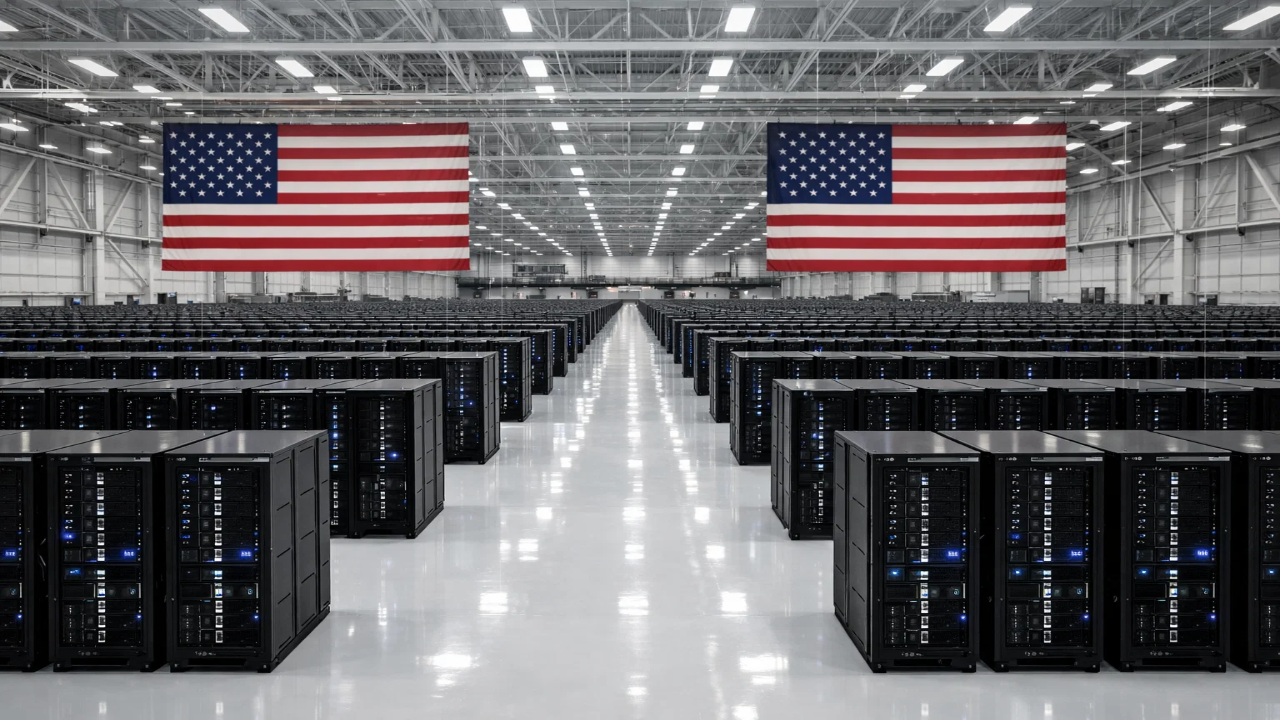Key Takeaways
- Nvidia has seen remarkable sales growth throughout 2024
- Nvidia’s current P/E ratio of 50 indicates that investors are paying a hefty premium
- Nvidia’s P/S ratio of 19 far exceeds other chip stocks like AMD and Intel
- Bulls argue that Nvidia's leadership in AI, coupled with its expanding addressable market, warrants its premium valuation.
- Bears highlights the risks of over-reliance on AI growth and potential competition from rivals such as AMD.
Latest News of Nvidia Stock?
Nvidia has been at the forefront of headlines recently due to its extraordinary stock performance in 2023 and throughout 2024. Driven by the booming demand for AI technologies, Nvidia has seen its stock price skyrocket, reaching all-time highs leading investors to question is Nvidia stock overvalued?
Its GPUs are essential for powering artificial intelligence applications, data centres, and high-performance computing, positioning the company as a leader in the AI gold rush.
In its latest quarterly earnings report, Nvidia reported record revenues of $13.5 billion, bringing its total to $60.92 billion for 2024, surpassing Wall Street estimates by a significant margin.
However, its valuation now exceeds $3.1 trillion, placing it above tech giants such as Apple, Microsoft, and Google. While this growth is impressive, many investors are asking the question is Nvidia overvalued?
This question has gained traction as Nvidia's price-to-earnings (P/E) ratio hovers around 51, slightly exceeding the tech industry's average of 20–30. Critics argue that such a high valuation suggests the stock may be overpriced, especially if future growth fails to meet expectations.

What Has Changed?
Nvidia's Valuation and Stock Price
Over the past year, Nvidia’s stock price has surged by more than 180%, fueled by investor optimism surrounding AI and machine learning. Despite this momentum, some key valuation metrics raise concerns:
Nvidia's P/E Ratio: Nvidia’s current P/E ratio of 50 indicates that investors are paying a hefty premium for its future earnings.
Nvidia's Price-to-Sales (P/S) Ratio: Nvidia’s P/S ratio of over 19 far exceeds other chip stocks like AMD and Intel, whose P/S ratios typically range between 5 and 10.

Market data on Nvidia's P/E from 19th December
Investor Sentiment
Investor sentiment has shifted toward cautious optimism. While many believe Nvidia’s AI dominance justifies its high valuation, others fear the stock price already reflects years of future growth.
Bullish Analysts: Supporters argue that Nvidia's leadership in AI, coupled with its expanding addressable market, warrants its premium valuation.
Bearish Analysts: Skeptics highlight the risks of over-reliance on AI growth and potential competition from rivals such as AMD and Google’s Tensor Processing Units.
What Are Analysts Saying About Nvidia Stock?
Phillip Securities
- Yik Ban Chong
- Buy
Maintains a price target of $160
2024-11-22
DA Davidson
- Gil Luria
- Hold
Maintains a price target of $135
2024-11-22
Benchmark
- Cody Acree
- Strong Buy
Upgraded from a price target of $170 to $190
2024-11-21
Rosenblatt
- Hans Mosesmann
- Strong Buy
Upgraded from a price target of $200 to $220
2024-11-21
Goldman Sachs
- Toshiya Hari
- Strong Buy
Upgraded from a price target of $150 to $160
2024-11-21

What Does This Mean for the Future?
Short-Term Outlook
In the short term, Nvidia's stock may continue to experience high volatility. If the company sustains its impressive revenue growth and maintains dominance in the AI hardware market, bullish momentum could persist. However, any sign of slower-than-expected growth could trigger a sharp correction, as high valuations leave little room for disappointment.
Additionally, Nvidia faces challenges such as:
Supply Chain Constraints: Meeting the surging demand for GPUs while avoiding supply bottlenecks will be critical.
Geopolitical Risks: U.S.-China trade tensions could impact Nvidia’s ability to access critical markets and components.
Long-Term Outlook
From a long-term perspective, Nvidia’s strategic positioning in AI, gaming, and data centres solidifies its growth potential. The company’s leadership in cutting-edge technologies like the H100 GPU and the Grace Hopper Superchip ensures it remains indispensable for AI training and inference.
However, potential risks include:
Increased Competition: Rivals such as AMD, Intel, and even Tesla are developing AI-focused hardware, which could challenge Nvidia’s market share.
Market Saturation: If AI adoption slows or becomes commoditized, Nvidia’s explosive growth could plateau.
Regulatory Oversight: As a dominant player in a critical industry, Nvidia could face scrutiny over its pricing and market practices.
For investors, the question of “Is Nvidia overvalued?” hinges on balancing its exceptional growth story against the inherent risks of a premium valuation. While Nvidia’s prospects are bright, its stock may not be suitable for risk-averse investors who prioritize value over growth.

Where Can I Find Out More?
For a deeper understanding of Nvidia’s valuation and market position, explore these resources:
Nvidia’s Investor Relations: Quarterly Earnings Reports
Independent Research: Tools like Intellectia.AI provide real-time analysis and insights to evaluate Nvidia’s stock performance.
To stay updated on Nvidia and other tech leaders, check out Intellectia.AI’s Stock Analysis Tools. Our platform offers real-time market data and AI-powered insights to help investors navigate the complexities of the markets.
Final Thoughts
Nvidia’s meteoric rise in the stock market is a testament to its innovation and leadership in the AI space. However, with a valuation that raises eyebrows even among tech enthusiasts, the debate over whether Nvidia is overvalued remains contentious. While its long-term potential is undeniable, current investors should approach with caution, weighing the rewards against the risks. For those willing to embrace volatility, Nvidia offers exposure to one of the most transformative technologies of our time.





